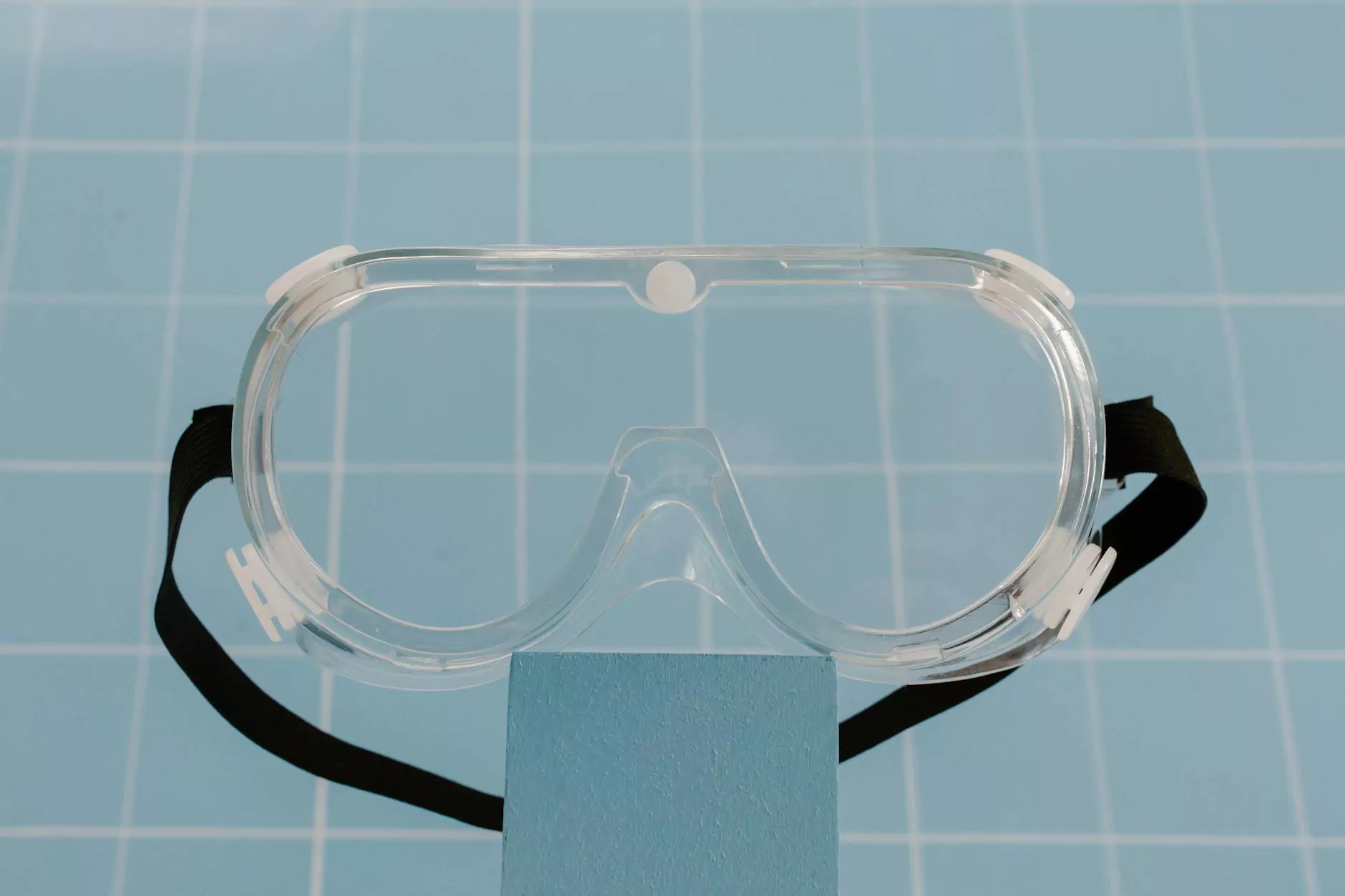Transforming Dirty Water to Clean Water: The Ultimate Solution with Advanced Water Purification Machines

In a world where access to clean, safe drinking water is increasingly critical, the technology behind transforming dirty water to clean water machines has become a cornerstone of modern environmental management and public health. With growing urbanization, industrialization, and environmental challenges, the need for effective and sustainable water purification solutions has never been more urgent. This comprehensive guide explores how innovative businesses specializing in water purification services are leading the charge in turning contaminated water sources into pristine, drinkable water, ensuring healthier communities and sustainable industries.
Understanding the Importance of Water Purification
Water is fundamental to life, yet billions of people worldwide still lack access to clean drinking water. Contamination from industrial waste, agricultural runoff, sewage, and natural pollutants significantly compromises water quality. These pollutants may include bacteria, viruses, chemicals, heavy metals, and particulates, all of which pose serious health risks.
Transforming dirty water to clean water isn’t just about improving taste; it’s about safeguarding health, improving quality of life, and promoting environmental sustainability. When contaminated water is efficiently purified, it becomes an invaluable resource for households, industries, and agriculture, reinforcing the significance of innovative purification solutions.
The Evolution and Technology Behind the Dirty Water to Clean Water Machine
Historical Perspective of Water Purification Technologies
Traditional water purification methods such as boiling, filtering, and chlorination have served communities for centuries. However, these methods often fall short when dealing with complex chemical and biological contaminants found in modern polluted water sources. This gap paved the way for advanced dirty water to clean water machines, integrating cutting-edge technology to efficiently address diverse impurities.
Modern Technologies Revolutionizing Water Purification
- Reverse Osmosis (RO): Employs semi-permeable membranes to remove dissolved salts, chemicals, and microbes, producing ultra-pure water.
- Ultraviolet (UV) Disinfection: Uses UV light to deactivate bacteria, viruses, and other pathogens effectively, ensuring microbiological safety.
- Activated Carbon Filtration: Absorbs organic compounds, chlorine, and unpleasant odors, improving water quality and taste.
- Nanofiltration and Microfiltration: Physically filter out bacteria, parasites, and suspended solids at the micro-scale level.
- Electrodeionization (EDI): Combines ion exchange and electrochemistry to achieve high purity water suitable for industrial applications.
How Business in Water Purification Is Pioneering Change
The Role of Water Purification Companies
Water purification businesses, like Kangen Water Hong Kong, are transforming entire industries and communities by providing tailored solutions for dirty water to clean water machine needs. Their expertise spans from municipal water treatment to commercial and residential purification systems, ensuring safe water at every level.
Innovative Solutions for Diverse Water Challenges
These companies leverage a combination of state-of-the-art technologies, custom-designed filtration systems, and ongoing maintenance services to address various contamination issues. Whether dealing with heavily polluted river water, industrial effluents, or municipal wastewater, these water purification services deliver reliable and scalable solutions.
Benefits of Using Advanced Dirty Water to Clean Water Machines
- Public Health: Significantly reduces waterborne diseases by eliminating bacteria, viruses, and parasites.
- Environmental Sustainability: Minimizes pollution by treating wastewater before it re-enters natural water bodies.
- Economic Efficiency: Produces cost-effective, low-maintenance solutions for large-scale water treatment projects.
- Industrial Compatibility: Meets the stringent water quality standards required for manufacturing, food processing, and pharmaceutical industries.
- Improved Quality of Life: Provides clean drinking water essential for daily human health and well-being.
Types of Water Purification Systems Offered by Industry Leaders
Home and Small Business Purification Units
Compact and user-friendly systems designed for residential use, these units incorporate multiple purification stages, including pre-filtration, reverse osmosis, and UV sterilization, ensuring safe tap water for families.
Commercial and Industrial Systems
Tailored for large-scale operations, these systems handle high volumes of water, employing multi-stage purification, ultrafiltration, and deionization processes to meet industry-specific standards. They support manufacturing, electronic fabrication, and food processing industries, where water purity is critical.
Municipal Water Treatment Solutions
Comprehensive systems that serve entire communities by removing complex pollutants, heavy metals, and pathogens. These large-scale solutions incorporate multiple technologies such as aeration, coagulation, filtration, and disinfection to provide safe water to millions.
The Path to a More Sustainable Future with Water Purification
Innovative businesses are not only focused on filtering contaminants but also championing circular water use, wastewater recycling, and energy-efficient technologies to create sustainable water management systems. By integrating renewable energy sources like solar power into purification plants, they reduce carbon footprints and promote environmental responsibility.
Case Studies of Successful Implementations
Many projects globally demonstrate how advanced water purification machines can turn heavily polluted water sources into clean, potable water. For instance, urban communities utilizing membrane bioreactors and advanced filtration significantly reduced waterborne health issues and improved urban resilience.
The Impact of the Dirty Water to Clean Water Machine on Society and Industry
Empowering Communities
Access to affordable, reliable clean water transforms lives, especially in developing regions. It reduces disease, enhances sanitation, and supports economic development by enabling sustainable agriculture and small business growth.
Revolutionizing Industry Standards
Industrial companies benefit from the deployment of state-of-the-art water purification solutions that ensure compliance with environmental regulations, improve product quality, and reduce operational costs.
Choosing the Right Water Purification Partner
Key Factors to Consider
- Technology Expertise: Does the company employ proven, modern purification technologies?
- Customization: Are solutions tailored to specific water quality challenges?
- Maintenance & Support: Is post-installation service available to ensure system longevity?
- Reputation & Experience: Does the company have a track record of successful projects?
- Environmental Commitment: Do they focus on sustainable practices and eco-friendly solutions?
Partnering with Industry Leaders like Kangen Water Hong Kong
Leading companies bring expertise, innovation, and a comprehensive approach to water purification, offering clients peace of mind and reliable, high-quality systems for all their dirty water to clean water machine needs.
Conclusion: The Future Is Clean Water
The transformation from dirty water to clean water is an achievable reality thanks to cutting-edge technology, dedicated businesses specializing in water purification services, and innovative dirty water to clean water machines. As we face increasing environmental challenges, investing in effective water treatment infrastructure is not just essential for public health but also a vital step toward sustainability and economic resilience.
Embracing these advancements means empowering communities, supporting industries, and preserving our planet’s precious water resources. The future of clean water begins with innovative solutions today, and strategic partnerships with industry leaders are your best pathway forward.









